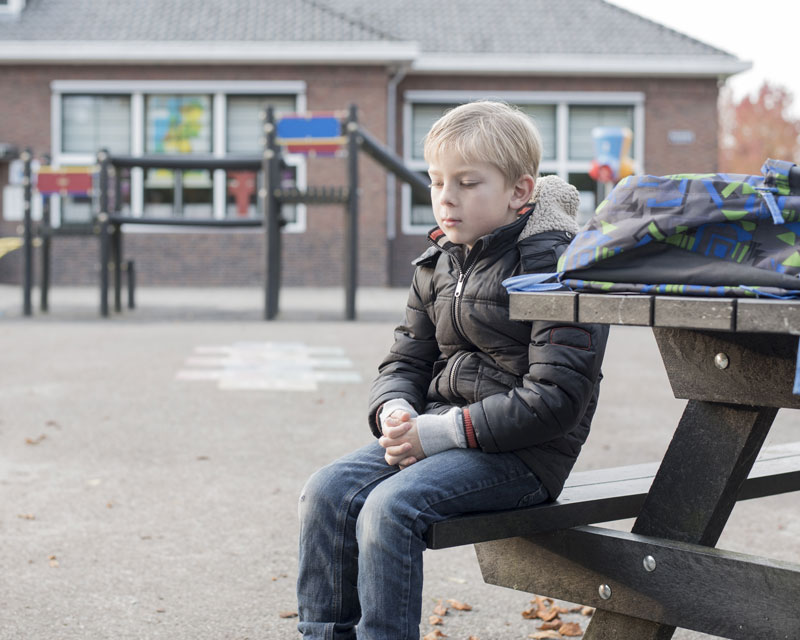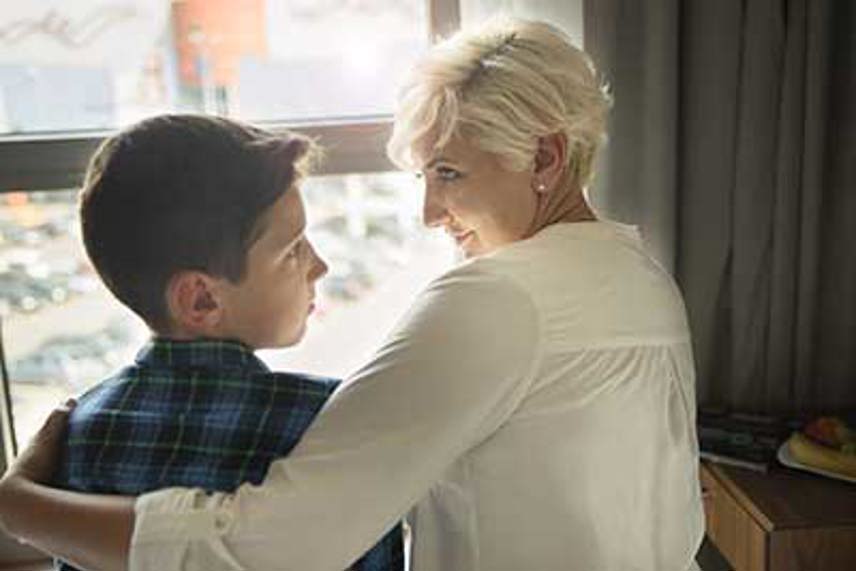Bullying
Advice for parents to spot the signs of child bullying
Bullying is a concern for many of the families who contact Children 1st Parentline. Although the thought of your child being bullied can be very upsetting and overwhelming, you’re not alone. We can help you to think through what steps to take to help your child.
 Bullying can take many forms including:
Bullying can take many forms including:
- verbal abuse – name-calling, being teased, put down or threatened
- physical abuse of any form, including damage to belongings
- spreading rumours
- being excluded or left out
- sending abusive messages or images
- any behaviour which tries to control or undermine someone.
Bullying can happen to children and young people either face-to-face or online.
Spotting the signs of bullying
Some children will go to great lengths to prevent adults from knowing what is going on, as they are afraid it will make things worse.
Signs that may point to bullying include:
- your child may seem unusually withdrawn
- your child may have unexplained scratches and/or bruises
- their clothes may be damaged
- they may not want to go to school
- they may not want to go out or play with friends
- you might see changes in their behaviour online or the way they use their phone
- your child may say they are feeling ill
- your child may behave in other ways that are out of character (for example being more upset, reacting more angrily).
Of course these are only some signs if bullying, and changes in behaviour could be a sign that something else is affecting your child. You know your children best, so trust your instincts.
Why children and young people find it hard to tell
It can be really difficult for children to tell their parents that they are being bullied. They don’t want to cause upset or stress and may feel worried what will happen. They may be worried it will make the bullying worse.
Parents naturally want to protect their children and ‘fix’ anything which hurts them.
Sometimes though, as parents take on the role of fixing the problem, their child’s needs and opinions can get lost. Children may feel more upset and frustrated if they feel they have no control or say over what is happening to them.
Parents can also feel overwhelmed by bullying – it is distressing to feel unable to prevent your child being bullied or even know how best to support them.

What can you do as a parent?
The relationship you have with your child is so important to help them through bullying. As well as taking practical steps, supporting and listening to your child helps them to develop the ability to cope with stressful and upsetting situations, even if it’s hard at the time. This ability to withstand, cope and recover is called resilience.
Here are some things you can try, which parents tell us have helped:
- Look out for signs.
- Listen – without reacting (if possible).
- Ask your child what they want to see happen.
- Let them know you love them and will be there for them.
- Be honest - if you need to get involved, tell them you’re doing this, and why.
- Keep talking to them and create a safe and calm space for them to do this.
- Don’t make it all there is – don’t ask them whether they were bullied today the second they walk in the door. Agree with your child when and how you talk about it. They may not always want to talk about it when you do.
- Spend time with your child doing things that you all like to do as a family.
- Try to ensure your child has positive activities to build their confidence and ability to cope – sports, hobbies, other friendship groups.
- Speak to the school (see below ) or get in touch with Parentline first for advice.
Schools
Each school is required by law to have an anti-bullying policy, which aims to reduce and prevent bullying. Some schools have excellent anti-bullying initiatives in place.
- Make an appointment with the school and clearly explain the situation. If possible involve your child. If it helps, make a note of things you want to say and remember you can take someone with you for support.
- Ask what the school’s policy is on bullying and what action they intend to take.
- Perhaps identify a key adult in school who your child trusts and can go to.
